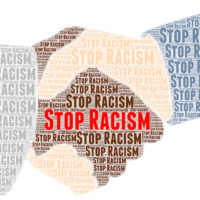EEOC Brings Racial Discrimination Lawsuit Against DSW Shoe Warehouse

The U.S. Equal Employment Opportunity Commission (EEOC) recently announced that it has filed a racial discrimination lawsuit against DSW Shoe Warehouse, Inc. (DSW Shoe) pursuant to Title VII of the Civil Rights Act of 1964 (Title VII). Title VII protects employees from discrimination on the basis of race. The EEOC has brought the race discrimination case on behalf of a former employee of DSW Shoe. In the complaint which initiated the lawsuit, the EEOC does not disclose the name of the former employee and refers to the former employee as the Charging Party.
On September 26, 2018, the EEOC filed the lawsuit, EEOC v. DSW Shoe Warehouse, Inc., Case No. 2:18-cv-1122, in the U.S. District Court for the Southern District of Ohio after initially attempting to reach a pre-litigation settlement through its statutorily mandated conciliation process. The EEOC claims that DSW Shoe discriminated against the Charging Party, who is African-American, on the basis of race in violation of Title VII. In this article, our Marion County, Florida race discrimination lawyers explain the EEOC’s allegations against DSW Shoe.
EEOC’S Allegations Of Racial Discrimination
DSW Shoe is a nationwide shoe retailer headquartered in Columbus, Ohio. From August 2014 through her termination on July 20, 2016, the Charging Party worked as an Assistant Manager at DSW Shoe’s retail store in Warrensville, Ohio. During her employment, the Charging Party was responsible for recruiting and hiring store associates. According to the EEOC, DSW Shoe concluded that there were too many African-Americans working at the Charging Party’s store and suggested that the Charging Party engage in recruiting and hiring practices that would result in a workforce made up of fewer African-American employees.
The EEOC further alleges that DSW Shoe treated the Charging Party differently and less favorably from employees outside of her protected race class. For example, the EEOC claims that DSW Shoe subjected the Charging Party to disciplinary action for “alleged deficiencies” that employees outside of the Charging Party’s protected race class “also engaged in, but for which they were not similarly treated.” The EEOC contends that DSW Shoe’s race-based discriminatory treatment of the Charging Party culminated in her termination. According to the EEOC, although employees outside of the Charging Party’s protected race class “engaged in the same or similar conduct of which [the Charing Party] was accused,” the other employees, unlike the Charging Party, were not terminated. The EEOC claims that the proffered reason for the Charging Party’s termination is a pretext for race discrimination.
EEOC Protects Employees From Racial Discrimination
The EEOC is the administrative agency of the United States responsible for interpreting and enforcing federal laws prohibiting employment discrimination, including racial discrimination. The EEOC is also authorized by federal law to bring lawsuits on behalf of victims of employment discrimination. In a press release regarding the case, the regional attorney for the EEOC’s Philadelphia District Office, Debra Lawrence, stated that “[s]ubjecting an employee to disparate discipline, unequal terms and conditions of employment, and termination because of the employee’s race are abhorrent employment practices that violate Title VII.” Ms. Lawrence added that the EEOC “will continue to work to combat such practices.”
Free Consultation With Ocala Discrimination Lawyers
Based in Ocala, Florida and representing employees throughout Central Florida, we have represented employment discrimination victims in hundreds of cases before the EEOC. If you have been a victim of race discrimination or have questions about filing a complaint of discrimination with the EEOC, please contact our office for a free consultation with our Marion County, Florida race discrimination attorneys. Our employment and labor law attorneys take race discrimination cases on a contingency fee basis. This means that there are no attorney’s fees incurred unless there is a recovery and our attorney’s fees come solely from the monetary award that you recover.